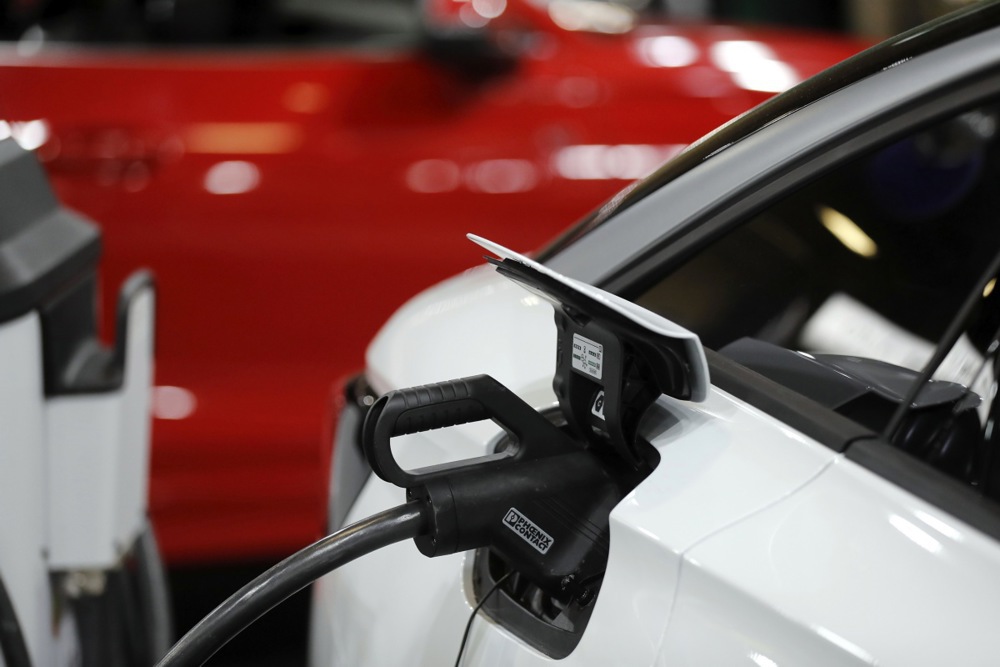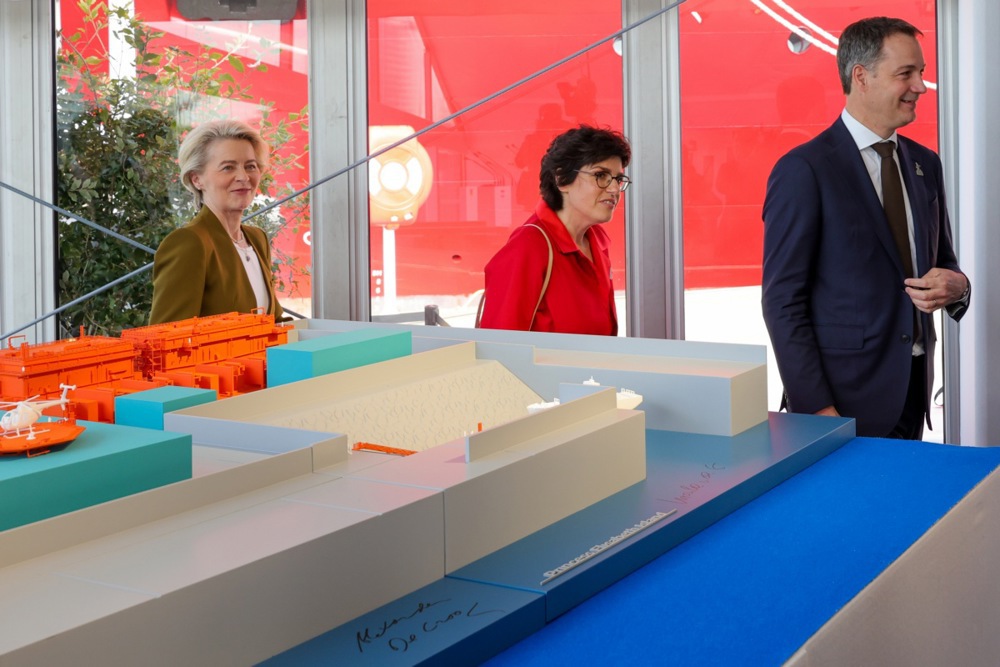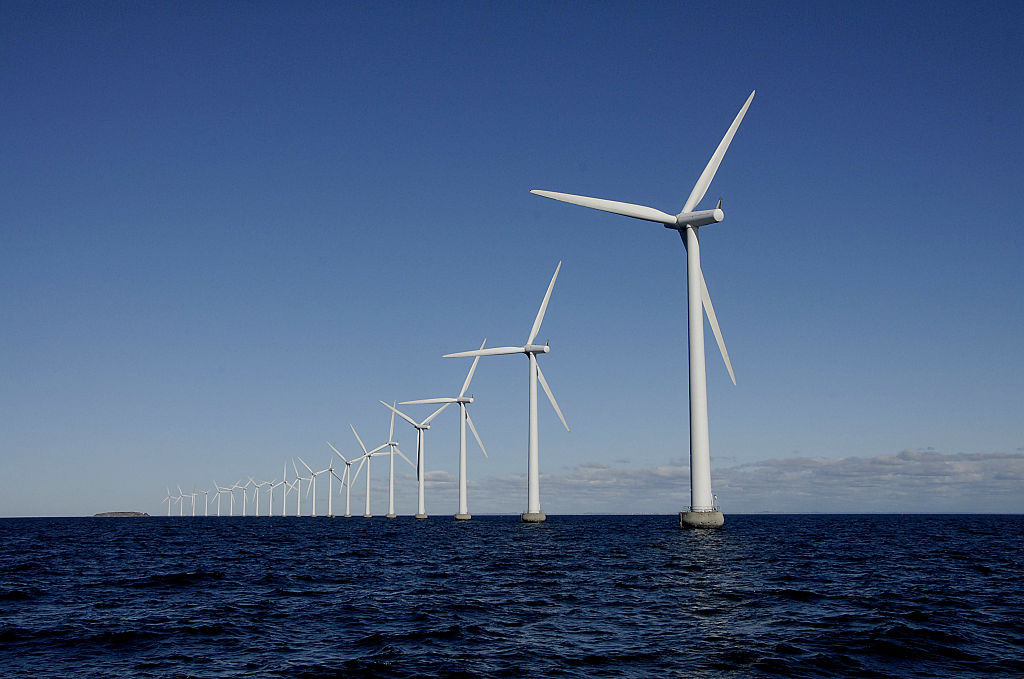Swedish electric vehicle battery maker Northvolt has filed for bankruptcy protection, a Chapter 11 process in the US as it desperately looks for extra cash.
One day after the filing on November 21, the firm — viewed as a crucial component of the European Green Deal — saw its CEO Peter Carlsson announce his resignation, claiming it was “a good moment to pass the reins to the next generation of leaders”.
The company had been trying to secure $300 million (€287.6 million) from investors but negotiations failed. As a result, it started the Chapter 11 process in Texas, protecting it against creditors.
Northvolt’s files in the bankruptcy court in the Southern District of Texas show it has $30 million (€28.7 million) cash on hand, estimated to be enough to finance its operation for one week at best.
Northvolt also has $5.84 billion (€5.62 billion) of debt. Last year, it made a loss of $1.2 billion (€1.15 billion)
That figure makes it one of the most indebted companies to file for bankruptcy in the US in 2024, according to data compiled by Bloomberg.
Carlsson had been at the helm of the company since its founding in 2016. He will continue as a board member and senior advisor, according to a Northvolt press release.
“Today marks the beginning of a new important phase for both Northvolt and me personally. Chapter 11 enables the company to continue to scale its operations during this period while meeting customer and supplier commitments,” he said.
“Ultimately, it is about positioning Northvolt for the long term. All in all, it is a good opportunity for me to hand over to the next generation of leaders.”
The firm said it had initiated a recruitment process to find a new CEO, while Tom Johnstone will continue as interim chairman.
After failed negotiations with possible investors to find extra money, Northvolt was forced to seek protection against bankruptcy in the US on November 21.
It is now temporarily protected against creditors’ claims..
For months, Northvolt had been holding talks with shareholders, customers and creditors over the lack of funds. The company is desperately reorganising and has already fired one-quarter of its workforce while it cancelled expansion plans.
Internal company documents and sources showed Northvolt had been consistently missing weekly production goals for shippable battery cells, or cells deemed good enough to be delivered to clients since early September.
The company said in the same month it would stop producing cathode materials, which are one of the fundamental components of batteries, at its facility in Skelleftea, Sweden.
It has been losing major contracts and has been unable to attract much-needed cash. In June this year, German car giant BMW withdrew an order worth €2 billion.
Northvolt was supposed to provide an alternative to US and Chinese competition in battery making and help to power the European push for greater autonomy in energy and electric vehicle production.
Yet, rather than being an independent “green” innovator, Northvolt has used ageing Chinese technology, with 20-year-old equipment that was already out of date when put in place, which led to reports about toxic waste, dangerous gases and a lack of proper safety equipment.
Rather than being an independent green innovator, Northvolt uses old Chinese technology, with 20-year-old equipment that was already out of date when put in place. https://t.co/oCI3Guhuj5
— Brussels Signal (@brusselssignal) October 9, 2024
In a press statement, the company stated that its flagship factory near the Arctic Circle in Sweden would operate as usual during the reorganisation.
At a hearing on November 21, US Bankruptcy Judge Alfredo Perez said he would grant Northvolt’s request to begin using its bankruptcy funding and other borrowings to pay employee salaries and expenditures throughout the Chapter 11 period.
The firm currently employs about 6,400 people in Sweden, Poland, and the US.
Northvolt companies in charge of proposed factories in Canada and Germany are not subject to Chapter 11 procedures, as they are financed separately, although the company has stated these projects will be postponed.
Much of the money Northvolt secured in the past came from governments or government-related institutes.
The Swedish Export Credit Corporation (SEK) gave more than $1 billion (€960 million), as part of a $5 billion (€470 million) “green loan” backed by guarantees from the Swedish National Debt Office.
As part of the same package, the European Investment Bank gave a similar amount while in Canada, pension funds from the government were good for more than $2 billion (€192 million).
In Germany, the government provided €902 million in state aid as Northvolt was building a factory in Schleswig-Holstein – €700 million in direct grants and €202 million in guarantees.
France gave €2.9 billion in state aid approved to support green technology production.
Other big investors were car manufacturers and banks including JP Morgan and Goldman Sachs.
Since its inception, Northvolt has not made a profit.
The company’s troubles have coincided with European carmakers facing a severe crisis, with all major brands performing poorly.
Dutch firm Stellantis recently changed its top management, Germany’s Volkswagen has made historic job cuts and announced dramatic austerity measures while Ford slashed 14 per cent of its European workforce.
The president of the German Association of the Automotive Industry Hildegard Müller warned at the end of October that one in four jobs in the industry in Germany was at risk.





